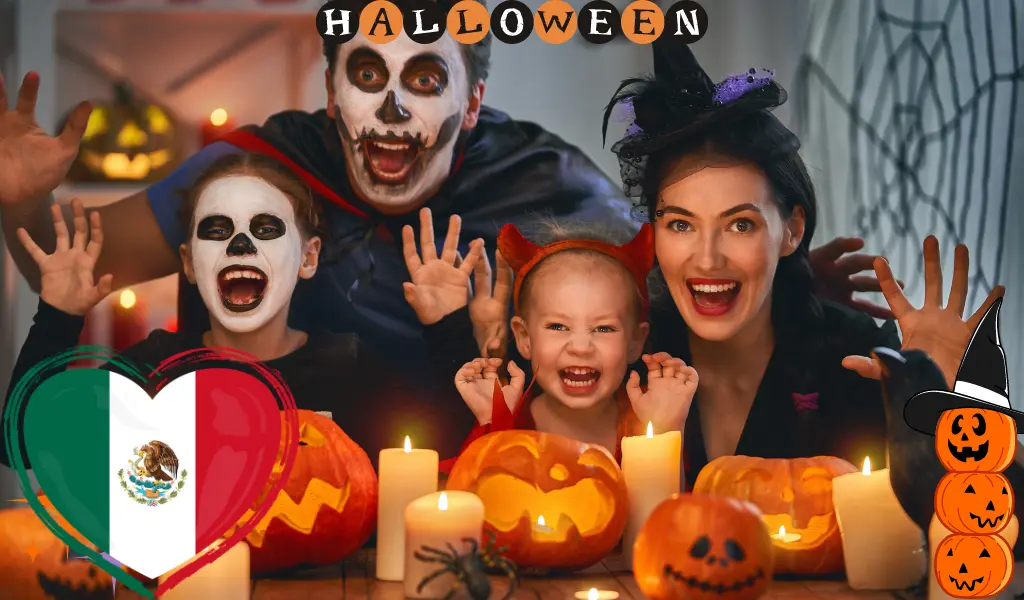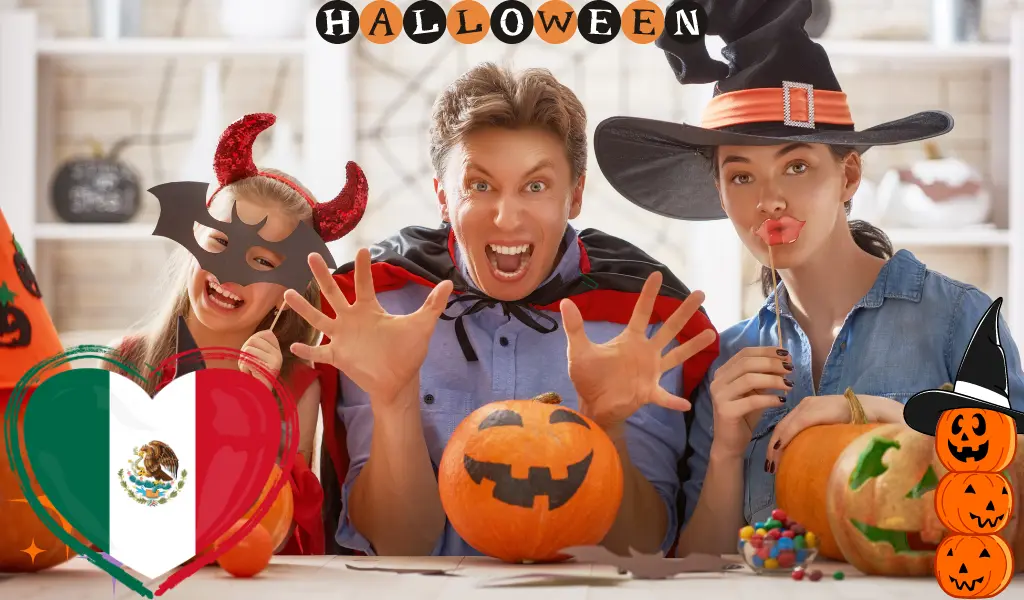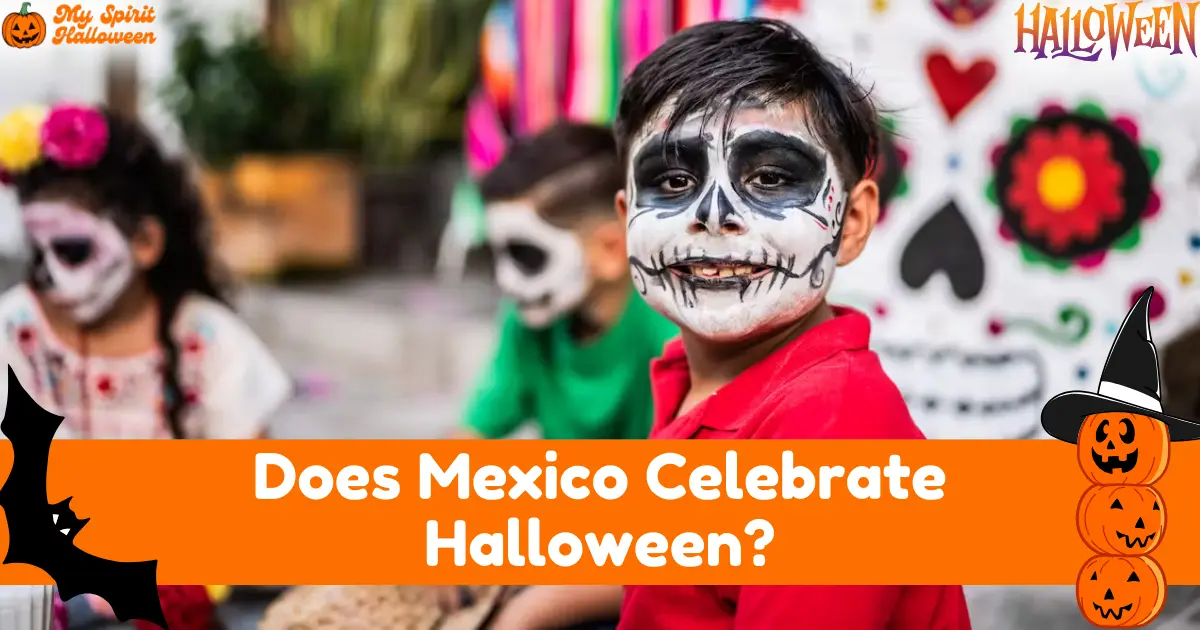
Does Mexico celebrate Halloween? This is a question that often comes up, and in this article, we’ll explore the answer in detail.
Halloween is a time of costumes, candy, and spooky fun, but in Mexico, the celebration has its own unique flavor.
We’ll discuss how Halloween is observed in Mexico, its connection to Día de los Muertos (Day of the Dead), and the cultural significance of these intertwined traditions.
Does Mexico Celebrate Halloween?
Yes, Mexico does celebrate Halloween, but with its own unique twist. While the holiday is recognized and celebrated with costumes, trick-or-treating, and parties, it’s often blended with the traditions of Día de los Muertos (Day of the Dead).
In Mexico, Halloween is more of a fun lead-up to the more culturally significant Día de los Muertos, creating a blend of festivities that reflect both American influences and rich Mexican traditions.
Overview of Halloween in Mexico
Halloween, originally an ancient Celtic festival, was brought to Mexico through cultural exchange, especially due to the proximity to the United States. Over time, Halloween has grown in popularity in Mexico, particularly in urban areas where American cultural influences are strong.
However, the way Halloween is celebrated in Mexico is often infused with local customs and traditions, making it a unique experience.
In Mexico, Halloween is more than just a night of fun and frights; it’s a time when people prepare for Día de los Muertos, a traditional Mexican holiday that honors deceased loved ones.
This blending of Halloween and Día de los Muertos creates a distinctive atmosphere that sets Mexican Halloween apart from celebrations in other parts of the world.


Halloween vs. Día de los Muertos
While Halloween and Día de los Muertos occur around the same time, they are quite different in origin and purpose.
Halloween, celebrated on October 31st, is about embracing the spooky and supernatural, with activities like trick-or-treating, costume parties, and haunted houses.
In contrast, Día de los Muertos, observed on November 1st and 2nd, is a deeply spiritual and cultural event focused on honoring and remembering the deceased.
In Mexico, the two holidays often overlap, leading to a unique fusion of traditions. For example, it’s common to see Halloween decorations alongside ofrendas (altars) dedicated to deceased family members.
Some families may even incorporate elements of Halloween, such as dressing up in costumes, into their Día de los Muertos celebrations.
However, it’s important to understand that Día de los Muertos holds a much deeper cultural significance and is considered one of the most important holidays in Mexico.
Traditional Halloween Activities in Mexico
Halloween in Mexico is celebrated with many of the same activities you’d find in the United States, but with a local flair.
Children and adults alike enjoy dressing up in costumes, often inspired by characters from popular culture, folklore, or even Día de los Muertos.
Trick-or-treating is also popular, especially in neighborhoods and cities with a strong American influence.
Costume parties are a common way to celebrate Halloween in Mexico, where people gather to show off their creative outfits and enjoy festive music, food, and drinks.
In some areas, you might even come across Halloween parades, where participants don elaborate costumes and parade through the streets.
Decorating homes and businesses is another key part of the celebration. In addition to the usual pumpkins and skeletons, you might see decorations inspired by Mexican folklore, such as La Catrina, a popular figure associated with Día de los Muertos.
These decorations create a vibrant and festive atmosphere that bridges the gap between Halloween and Día de los Muertos.

Regional Variations in Halloween Celebrations
Mexico is a diverse country, and how Halloween is celebrated can vary from region to region. In major cities like Mexico City, Guadalajara, and Monterrey, Halloween tends to be celebrated with more enthusiasm, particularly in areas where American culture has a strong presence.
These cities often host large Halloween events, including costume contests, themed parties, and public trick-or-treating.
In smaller towns and rural areas, Halloween might not be as widely celebrated. Instead, the focus tends to be more on Día de los Muertos.
However, some communities blend the two holidays in creative ways, incorporating elements of Halloween into their Día de los Muertos festivities.
For example, in some regions, children may dress up in costumes and visit homes to ask for sweets or small gifts, a tradition similar to trick-or-treating.
However, the focus remains on preparing for Día de los Muertos, with families spending time decorating graves and building ofrendas.
Cultural Significance and Public Perception
Halloween in Mexico is generally embraced as a fun and light-hearted celebration, particularly among younger generations. However, there are differing opinions on its cultural significance.
Some people view Halloween as a foreign holiday that detracts from the importance of Día de los Muertos, while others see it as an opportunity to celebrate and enjoy a different kind of festivity.
In Mexico, where Catholicism is the dominant religion, some people may also have reservations about Halloween due to its associations with the supernatural and the macabre.
Despite this, Halloween continues to grow in popularity, especially in urban areas where the influence of American culture is more pronounced.
Overall, Halloween in Mexico is seen as a complementary celebration to Día de los Muertos rather than a replacement.
Many people enjoy the opportunity to partake in both holidays, appreciating the chance to dress up, have fun, and celebrate with family and friends.
Conclusion
Does Mexico celebrate Halloween? The answer is a resounding yes but with a distinct Mexican twist. Halloween in Mexico is embraced with enthusiasm, featuring costumes, trick-or-treating, and festive gatherings.
However, it’s often celebrated alongside Día de los Muertos, creating a unique fusion of traditions.
This blend of Halloween fun with the deep cultural significance of Día de los Muertos showcases Mexico’s ability to merge new customs with cherished traditions, making the holiday season a vibrant and meaningful experience.
FAQs
Yes, Halloween is celebrated in Mexico, particularly in urban areas and among younger generations. People enjoy dressing up in costumes, going trick-or-treating, and attending themed parties. The celebration often blends with the traditional Día de los Muertos festivities.
Mexican children celebrate Halloween by dressing in costumes, trick-or-treating in their neighborhoods, and participating in school or community parties. Some areas also host Halloween-themed events and parades, making it a fun and engaging experience for kids.
In Mexico, Halloween and Día de los Muertos are celebrated in close proximity, often blending together. Halloween adds a festive, playful element leading up to Día de los Muertos, which focuses on honoring deceased loved ones. This combination creates a unique and vibrant holiday season in Mexico.
Related Post
- Does Japan Celebrate Halloween
- Which Countries Celebrate Halloween
- Halloween Celebrations in Tennessee
- Halloween Celebrations in Iowa
- Halloween Celebrations in Delaware


